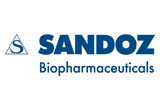A critical ingredient of a successful learnership programme is one that fosters a sense of belonging and loyalty amongst learners to the organisation, says Doreen Nixon, director of Human Resources (HR) at Sandoz South Africa (SA).
"This is in addition to imparting relevant knowledge about the industry and the jobs the learners are being trained for and being responsive to the needs of the organisation, the industry and the broader economy," she says.
Learnership programmes in SA have over the years played a critical role in addressing the gap that usually exists between theory and practice among graduates. This is because of their workplace-focused approach gaining a qualification. They provide institutional learning and work experience, and are outcomes-based as Sandoz's programme illustrates.
Sandoz; one of top four generic manufacturers in the country; launched its learnership programme in 2010 in response to a shortage of medical representatives in the industry. The overall objective of the programme is to create a pool of young talent for the company, which will also benefit the industry. "People are our priority, we put their needs first. Be they a patient, a healthcare professional, retailer, business partner or employee. We also believe that playing a valuable role in society goes one step further," comments Nixon.
Holding onto young professionals
One of the challenges in the pharmaceutical sector is its inability to hold on to young professionals, which is why building a sense of loyalty and affiliation to the organisation is important. "The best way to achieve this is to expose learnership recruits to the organisation and its culture from the outset. This is key to building an employer brand of trust and ensuring we have competent experts in their field who are empowered and are accountable for their goals and actions," says Nixon. "We do this by taking them through full-on induction at the beginning of the programme. This is followed by engagements between the learners and company representatives throughout the 12-month programme."
The Sandoz learnership programme engages the services of recruitment agencies to find graduates with qualifications in health science related fields to join its programme. These are graduates under the age of 30 who want to get into the pharmaceutical sector. Once appointed, they are taken through an induction programme followed by advanced driving assessments, and four months of theoretical learning with a training provider that specialises in training medical representatives.
Nixon says an increasing number of small to medium organisations, in particular, are opting to use consultants to manage their learnership programmes for them. The company is always looking for innovative solutions that will make a difference.
The theoretical aspect of the programme provides learners with a comprehensive introduction and overview to the pharmaceutical and health care industries and includes presentation skills. Learners write exams after the four months; this is followed by months of practical on-the-job training at Sandoz. All learners receive a stipend for the duration of the programme to help them cover their travel costs and other expenses.
Learners also have to submit a portfolio of evidence demonstrating that they have work place experience as a medical representative to the Chemical Industry, Education Training Authority (CHIETA), which is the industry's Sector Education and Training Authority (SETA). The portfolios are assessed and if the learner is deemed competent, they are awarded a certificate at the end of the programme.
Practical skills and experience
The learnership programme provides young graduates, who would have been possibly unemployed, with practical skills and experience of the industry. This also guides learners in identifying areas they are interested in pursuing within the pharmaceutical industry. The experience is invaluable for the learners as it increases their employability following their 12 months training.
Of the seven recruits who have already completed the programme, Sandoz has offered contracts to four and a permanent position to one of the learners. The team is currently helping the company tap into a new market, resulting in a win-win situation for everyone.
"Our objective is to expose young people to our industry. These are young people who without such initiatives would not have the opportunity to gain access to our industry. They are young, educated, driven, and want to be active participants in the growth of our sector and economy." Sandoz's latest intake of graduates comprises only female learners. "It is important that a learnership programme strives to also correct imbalances in its sector," Nixon explains.































